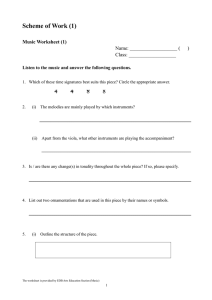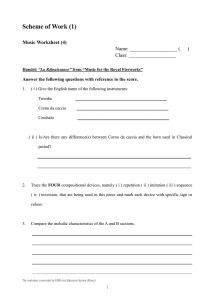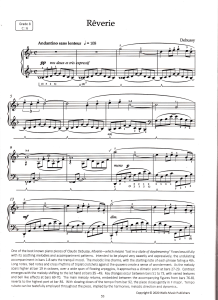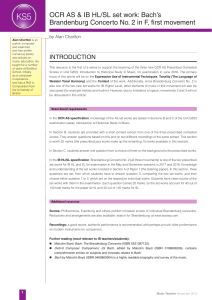Listening Worksheet 2
advertisement
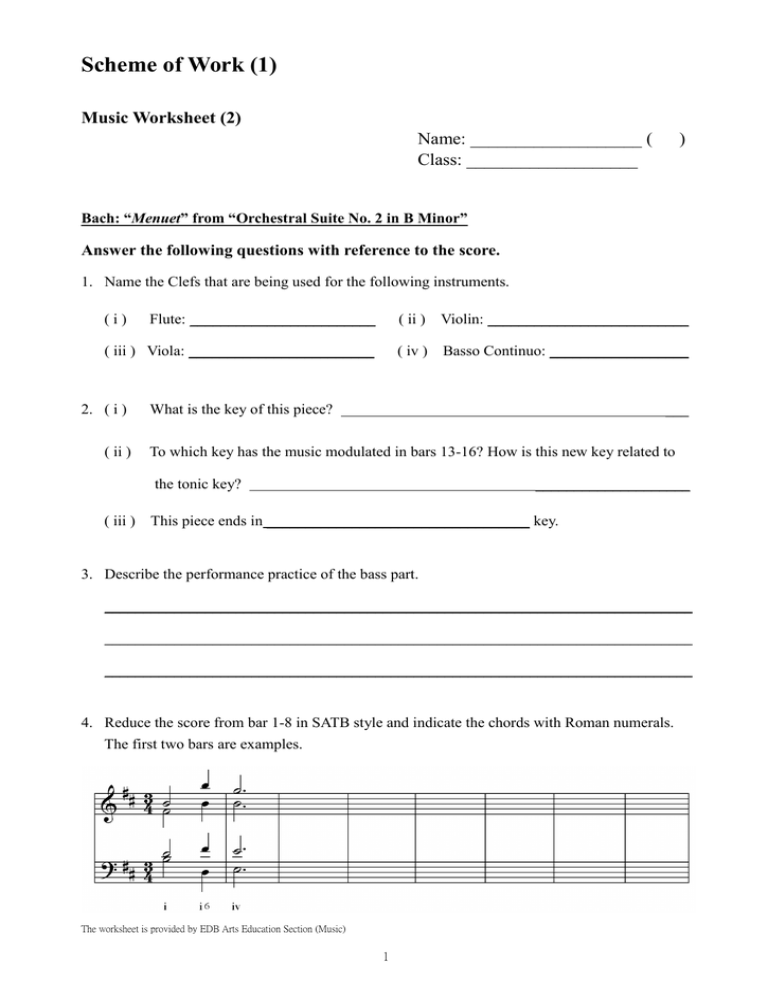
Scheme of Work (1) Music Worksheet (2) Name: ___________________ ( Class: ___________________ ) Bach: “Menuet” from “Orchestral Suite No. 2 in B Minor” Answer the following questions with reference to the score. 1. Name the Clefs that are being used for the following instruments. (i) Flute: ________________________ ( ii ) Violin: __________________________ ( iii ) Viola: ________________________ ( iv ) Basso Continuo: __________________ 2. ( i ) ( ii ) What is the key of this piece? ___ To which key has the music modulated in bars 13-16? How is this new key related to the tonic key? ____________________ ( iii ) This piece ends in __________________________________ key. 3. Describe the performance practice of the bass part. ____________________________________________________________________________ ____________________________________________________________________________ ____________________________________________________________________________ 4. Reduce the score from bar 1-8 in SATB style and indicate the chords with Roman numerals. The first two bars are examples. The worksheet is provided by EDB Arts Education Section (Music) 1 5. Name the cadences at the end of section A and B respectively. Section A: ________________________ Section B: ________________________ 6. ( i ) Explain why the melodic line can be heard easily. _______________________________________________________________________ _______________________________________________________________________ ( ii ) Trace the melodic line by using arrows to mark on the score. ( iii ) Is there a significant motif in this piece? If yes, please circle in the score and explain its significance. _______________________________________________________________________ _______________________________________________________________________ _______________________________________________________________________ _______________________________________________________________________ 7. Discuss the follow statement with reference to the piece. ‘In his [Bach] music, the often conflicting demands of harmony and counterpoint, of the melody and polyphony, reach a tense but satisfying equilibrium.’ (Palisca, A History of Western Music) ________________________________________________________________________________ ________________________________________________________________________________ ________________________________________________________________________________ _________________________________________________________________________________ The worksheet is provided by EDB Arts Education Section (Music) 2
